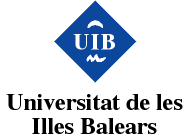ABOUT US




Climate change is inducing severe limitations to vegetable crops in the Mediterranean, due to severe, often concurrent (multiple) stresses, in particular drought, heat, and salinity. VEG-ADAPT gathers farmers, industry, and research form eight Mediterranean countries, with the shared scope of increasing the tolerance of three major vegetable crops (tomato, pepper, and melon) to stress induced by climate change in this area. To this aim, VEG-ADAPT will follow three parallel and integrated lines of research: characterization and selection of tolerant local varieties and new hybrids, discovery of physiological processes contributing to tolerance and of the underlying genetic patterns and markers, and optimization of cropping management techniques reducing susceptibility to climate change-induced stress. The selection process will provide accessions to serve for physiological and genetic studies and to be tested in the field; genetic and metabolic markers will help selecting genotypes; field experiments will test the performance upon stress of selected varieties, also used as rootstocks, of soil amendments, and of smart irrigation techniques. The socio-economic effect of the innovative agronomic tools and techniques developed within VEG-ADAPT will be assessed. Novel results will be disseminated and demonstrated to farmers and industry. Transfer of the results of VEG-ADAPT to other vegetable crops will be possible, due to biological, physiological, and agronomical similarities. VEG-ADAPT will impact Mediterranean farmers, by providing ready solutions for climate change-induced cropping limitations; the industry, by offering genotypes and genetic traits to be used in breeding programmes; scientists, by uncovering novel metabolic and molecular processes inducing tolerance of crops; and the society at large, by improving sustainability of vegetable crops. A multi-actor approach is embedded within VEG-ADAPT and will be supported by a dedicated Stakeholder platform.










.png)
.jpg)













